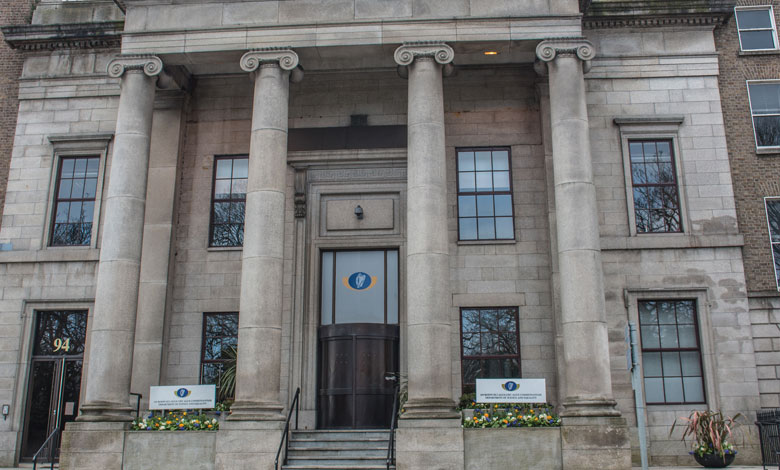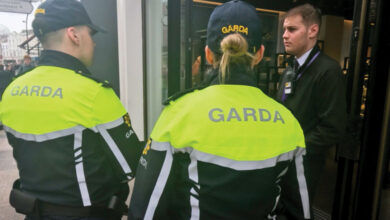Youth Justice Strategy progress

The latest progress report on the Youth Justice Strategy 2021-2027 shows a youth justice system becoming more collaborative, data-driven, and evidence-informed, with an increasing focus on prevention, diversion, and rehabilitation.
The 2024 statement highlights strengthened coordination across agencies through the Youth Justice Oversight, Governance and Advisory Groups, which met regularly throughout the year. These bodies, the report says, have helped sustain focus on addressing underlying factors of youth offending, supporting early intervention, and promoting desistance.
Ongoing priorities include capacity-building for Youth Diversion Projects (YDPs), developing supports for children in care, and enhancing data systems for evidence-based decision-making. The Department also continued its partnership with Northern Ireland through the North South Youth Justice Advisory Group, which met twice in 2024 to discuss shared challenges and legislative developments, including the forthcoming Children (Amendment) Bill 2024.
The joint-commissioning or No Wrong Door approach, now active in six pilot areas, continues to promote collaboration between local services to ensure young people receive coordinated support without duplication or gaps.
Youth diversion projects
One of the strategy’s central aims is full national coverage of YDPs. The report asserts that this moved closer to completion in 2024. Following four new projects launched in 2023, the Department advanced plans for two final projects in north Tipperary and east Clare, completing the network.
Consultations with local services, including Tusla, the Probation Service and Education and Training Boards, informed the design of new projects that will serve children aged between eight and 11, family members of participants, and harder-to-reach groups. Six expressions of interest were received, and assessments were undertaken by local committees chaired by senior gardaí and supported by community-based organisations and the University of Limerick’s Research Evidence into Policy, Programmes and Practice (REPPP) team. The successful providers will be announced in early 2025, with operations expected to begin by year-end.
The national network of YDPs represents a cornerstone of the State’s preventative strategy, offering structured interventions and family support to divert young people away from offending behaviour and into pro-social development pathways.
Court Accompaniment Scheme
The 2024 report says that “significant progress toward introducing” a nationwide Court Accompaniment Scheme for young defendants was made. Modelled on the Victim Support at Court (V-SAC) initiative, the scheme will provide trained youth justice workers to explain court processes and offer informal emotional support, without overlapping with legal representation.
This initiative, to be delivered through participating YDPs, aims to reduce stress for young defendants and strengthen engagement with diversionary options. Early pilots will run in Dublin, Kerry, Kildare, Limerick, Laois, Sligo, Clare, and Leitrim, with training developed jointly by V-SAC and the Solas Project. A full national rollout is anticipated by the end of 2025.
The Greentown Programme
The Greentown Programme, designed to disrupt the recruitment of children by criminal networks, continued in two confidential trial sites. Its four pillars of network disruption, community efficacy, intensive family support, and pro-social opportunities remained central to delivery. A standard operating procedure was finalised to support data sharing and collaboration among agencies, and work began to replicate the Twinsight research process for updated crime-network mapping.
The Department has confirmed funding for Greentown until 2026, conditional on evaluation and replication milestones. International collaboration also deepened, with Irish representatives engaging in knowledge exchange with Dutch officials on the Prevention with Authority initiative.
Relationship-based practice
The newly integrated youth diversion projects research and development team focused on embedding the relationship model of practice across YDPs. Through national workshops, new training resources, and a ‘mastery group’ of expert practitioners, the model emphasises trust-building, empathy, and accountability as foundations for behavioural change.
Training programmes on motivational interviewing, restorative practices, and outcomes-focused planning were delivered nationwide, reflecting the strategy’s objective of ensuring growing professionalisation of the youth justice workforce.
Collaboration across the system
The 2024 statement says that the Probation Service and Young Persons Probation (YPP) worked with 764 young people during the year, supporting community supervision, pre-sanction assessments, and restorative approaches. A new Youth Joint Agency Response to Crime (Y-JARC) project was launched in Dublin’s north inner city to coordinate responses to high-risk youth offending.
Cooperation with the North’s Youth Justice Agency intensified, with shared training and practice exchange is intended to be pursued in 2025. Meanwhile, Oberstown Children Detention Campus continued implementing its Children’s Rights Policy Framework, focusing on education, employment readiness, and reintegration supports.
Speaking in the Dáil in April 2025, Minister of State at the Department of Justice, Home Affairs and Migration with special responsibility for International Law, Law Reform and Youth Justice, Niall Collins TD, said: “The youth justice strategy is a forward-thinking plan designed to address the unique challenges faced by young people in Ireland.
“At its core, it emphasises early intervention, prevention, family support and community engagement. It includes a number of key objectives aimed at promoting positive behavioural change. It is only by targeting this behaviour that we can break the cycle of young people reoffending.”





